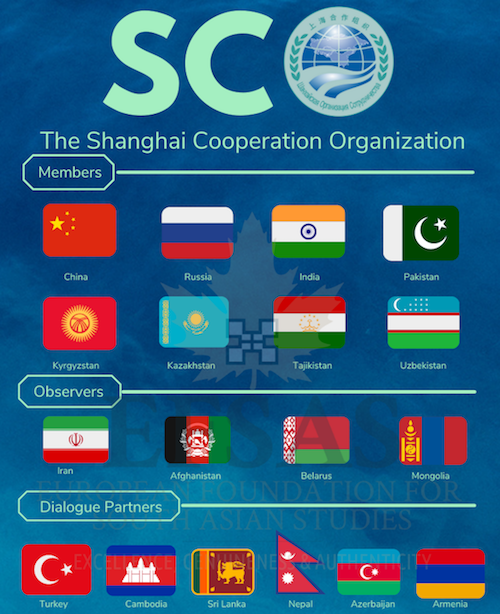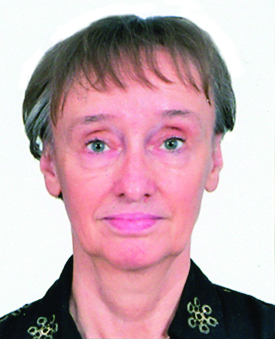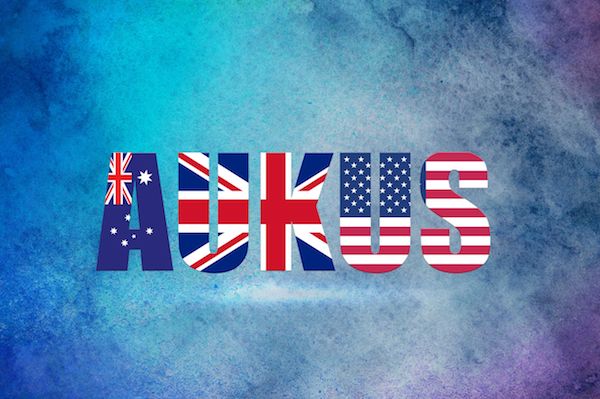The world is changing, a new continent has come up in front of our eyes: Eurasia. Continents being defined as “main continuous expanses of land”, one wonders why Europe and Asia being very much a continuous land mass has throughout the centuries been perceived as two separate continents. One major reason may be that from the 18th to 19th Century. The western end of the Eurasian landmass was taking a very different turn in its development with renaissance, scientific and industrial revolutions and ‘modernity’ changing its economic, social and intellectual set-up fundamentally. That was why Europe was considered to be a separate ‘continent’. Making the Ural Mountains the dividing line between this “Europe” and Asia has been a rather arbitrary act of geographers. As early as 1904 Sir Halford Mackinder, a British geographer, said that in his opinion Europe and Asia would be the future ‘pivot of history’.
While Mackinder was the first western scientist to propound the idea of Eurasia and its immense potential, what we are forgetting is that Russia had developed its own Eurasian idea centuries ago and had never dropped. It The first full-fledged Russian colonization expedition to Siberia was Cossack Yermak’s campaign against Kuchum in 1581. The Russians had reached the Pacific Ocean by 1639, however unlike the British territories in North America, Siberia was not treated as a colony nor did Russia divide its territories along colonial lines. The region just became a part of the expanding Russian Empire as another governorate and the local elite were integrated into the Russian administrative system. The trans-Siberian railway construction from 1891 to 1916 connected Siberia even closer to western Russia. In the thinking that evolved over the centuries among Russians western Russia and Siberia were a unity and Russian identity is as much European as Asian Eurasian in reality.
It took more than a century, two world wars and the defeat of the communist system for the Eurasian vision to come true. All these events though negative in some of their aspects greatly speeded up the process of globalization that is the precondition for a new stage of global power distribution. A world dominated by colonialism and imperialism create an undeveloped and mostly exploited ‘third world’. The collapse of the ‘second’ system, communism, made the world from bipolar into unipolar for a short period. We have come in the 21st century to see the US unipolarity crumbling and a new international economic and political power sharing system coming into existence.
When it became clear that the West and NATO world not keep out from what Russia considers its sphere of influence, Russia started looking for new and alternative international partners for security and economy. For the first time it started looking east and at China, the new upcoming global power. While Sino-Soviet relations in the past had been always uneasy, to say the least, that changed after the fall after the collapse of the Soviet Union when Chinese-Russian rapprochement began. The two countries declared in 1992 that they were pursuing a “constructive partnership” and in 1996, they progressed toward a “strategic partnership”. In 2001, they signed a treaty of “friendship and cooperation.”
This first real sign of Eurasia becoming a reality and the new pivot of history was the amazing development of China into the second largest economy. Challenged by this development, the West especially the US and excited by the huge Chinese market started the looking East. However they were also frightened by the enormous power house. We are today having something close to a new cold war, the US, helped by UK and Australia, is now trying to contain, China through AUKUS. With the help of Japan, AUKUS may contain China in the Pacific and Indian Oceans, what about the land-based BRI? And would Japan like to take a long-term risk its maritime economic lifeline given that its sea trade routes would be under threat of interdiction by the massive growth of the Chinese may, both in quality and quantity? In any case it seems to be too late; the contours of the new global system are already visible; they include the mostly land-based Eurasian economic and infrastructure initiative BRI and a new political organisation like the Shanghai Cooperation Organisation (SCO). The latter displays a new way to organize global affairs in a truly multilateral, all-inclusive way. This new power sharing system is influenced by the Chinese philosophy of Tianxia.
Tianxia means “all the land under the heaven” and had its origins in Chinese history. The concept of Tianxia is closely associated with civilization and order in classical Chinese philosophy, and has formed the basis for the world view of the Chinese people and the nations influenced by them since at least the first millennium BC. Today the most critical meaning of ‘Tianxia’ is that of ethics and political science. It is an ideal of one world, and imagines a political unit that surpasses a nation and offers a value gauge that differs from a nation state. Today the basic structure of ‘empire nation state’ requires reflection, the embedded logic of the struggle against imperialism is mainly responsible for the war and conflict in the world. Instead, a multipolar community of people based on common values starting from but not stopping at Eurasia is the alternative offered by Tianxia. In a crude way, Alexander the Great and his “Companions”, tutored by Aristotle, inadvertently emulated such a concept in his conquests. In many of the territories he captured he sought to make allies out of his former enemies. This early form of “United Nations” did not last long after his early death, civil wars soon tore his empire apart.

The Shanghai Cooperation Organisation (SCO) founded in 2001, is a Eurasian political, economic, and security organisation. The SCO Charter was signed in June 2002 the organization became a reality on 19 September 2003. According to this charter, it functions as a forum of equal partners to strengthen confidence and neighbourly relations among member countries and promote cooperation in politics, trade, economy, and culture, to education, energy, and transportation.” Today it has broadened its focus to security related matters and economic cooperation. It has eight member states including Pakistan and India since 2017, four observer states including Afghanistan, Iran, Mongolia and Belorus and six dialogue partners (Turkey, Sri Lanka Nepal, Cambodia, Azerbaijan and Armenia).
It is one of the main, if not the major Eurasian organization, uniting the combined size and significance of its membership, which represents one-quarter of the world’s population and three-fifths of the territory of the Eurasian continent and includes two nuclear powers with permanent seats on the UN Security Council. While the agenda of the SCO is still evolving this organization is important because it stipulates a new way of states dealing with each other, namely it actively notes the right to diversity of its members in terms of their political and economic systems, scales of diplomatic and economic prowess, religions, cultures and geography. In noting this diversity, the SCO claims to represent a new model of inclusive regional cooperation capable of encompassing all its members.
The Eurasian concept of accumulating economic power and re-organizing political power is a global-scale strategy that acknowledges the objectivity of globalization in an economic and political way of connectivity. In that sense, this new development is weakening importance of nation-states and highlights the importance of regions and their connectivity. This different scenario entails no unipolar world or united global government but offers several global zones that are not nation-states with set international borders but a cross-border coalition reorganized into continental federations or “democratic empires” with a large degree of inner self-government. An alternative or multipolar version of globalization, the Eurasian Idea accepts globalization as the currently major fundamental world process deciding the main vector of modern history.
Contributed:

Dr Bettina Robotka, former Professor of South Asian Studies, Humboldt University, Berlin, Editor of the Defence Journal and a Consultant to Pathfinder Group.





